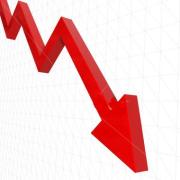
After penning the entry on Yuan’s appreciation, I come to observe another sort of criticism that is used on China that does contribute to the global imbalance and probably needs more attention than the currency but is an issue the Chinese government have way less control. That is the lack of spending by the Chinese, which is something repeated time and again. The Economist’s Banyan column recently compared India to China:
Levels of capital and infrastructure investment [of India] compare favourably with China’s. And, much more than in China, the hot story in India is domestic demand. India is no mercantilist adding to global imbalances. It imports more than it exports, creating much needed global demand.
Although the article goes on to discuss the flaws of the Indian economy, especially its lack of participation in the supply chains that link up much of the emerging economies of Asia as a result of their focus on exporting services rather than industrial goods. Industrial production in India remains largely in the hands of a huge number of medium-sized enterprises.
Anyways, back to the fact that China is under-consuming; James Surowiecki explains on The New Yorker why the Chinese don’t spend. He briefly ponders over culture, but goes on to focus on the nature of their economy, and the structures that are reducing access to credit and thus raising the need to save, which means perenially low consumption.
In a sense, the culture revolves around the idea of investment for the future, saving first so that one would be able to spend them. The long history of struggles and uncertainty means the Chinese are probably more risk adverse than their Western counterparts and reluctant to take on debts. In a period of growing wealth, the Chinese naturally hopes to put aside money for the future (be it studies, starting a business, a family or just for rainy days).
As the economy develops, it’ll mature and eventually shift towards higher credit and lower savings. The large investment that the government is pumping into the economy will have to induce greater efficiency in use of capital to help speed up the maturity. Till then, Americans will still get the chance to complain about Chinese inability to spend in the consumer sense.









